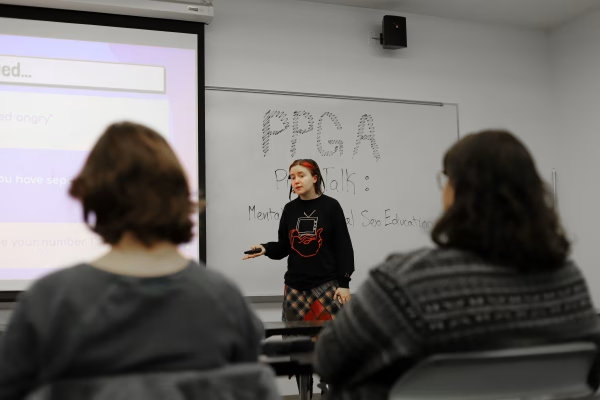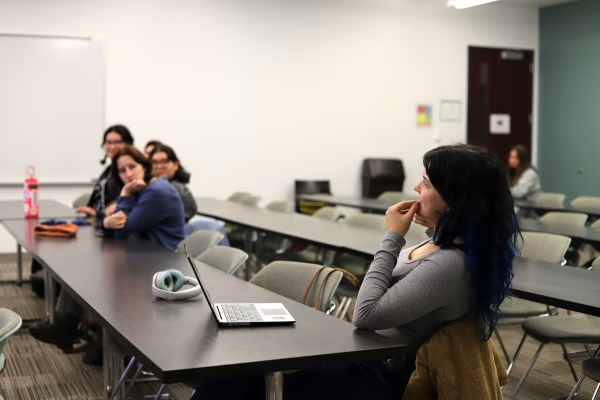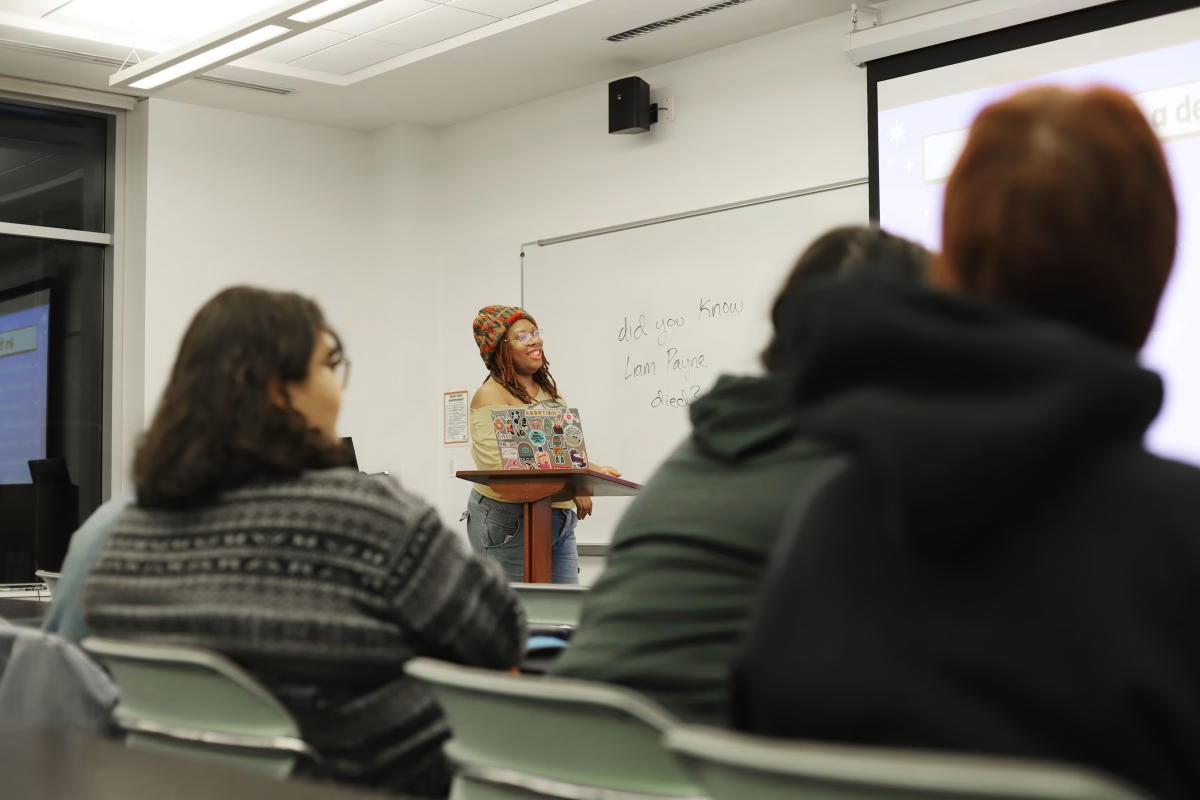DePaul doesn’t require students to attend Catholic mass, has an LGBTQIA+ Resource Center and even has a demon for a mascot. But, as a Catholic university, there’s one principle on which DePaul isn’t willing to compromise: restricting contraceptives.
“You’ll walk around campus and see people doing stuff that you wouldn’t expect from a Catholic school, but the one thing of condoms being limited is crazy,” freshman Lana Aladhami said. “It just doesn’t make sense.”
Unlike many public universities, which offer free condoms and have Plan B vending machines, DePaul’s “inappropriate medical device policy” prohibits distribution of any birth control devices on campus, including at the Student Health Center.
Interim vice president of Mission and Ministry Mark Laboe and Vice President of Student Affairs Gene Zdziarski said in a statement to The DePaulia that “Catholic teachings on contraception” are the basis for the policy, as the church officially prohibited the use of them in 1968. The church cited the belief that sexual activity should only be used for “the procreation of human life.”
The DePaul student organization Planned Parenthood Generation Action (PPGA) has been trying to repeal the policy for years through protesting, petitioning and meeting with administration, Maya Roman, the group’s vice president, said.
PPGA argues the ban blocks the university from giving students “the resources they need” to protect their sexual health, especially since supplies and services are often expensive, Roman said.

“We constantly hear from students that either can’t afford a Plan B because they’re expensive, or they need a bunch of condoms, or they want to bring condoms for a party but they don’t have the money to spend $20 on them,” Lillian Bauer, a lead PPGA organizer, said.
To combat this, last year PPGA established an off-campus delivery service in which students can request free contraceptive supplies anonymously.
Students must fill out an online form to choose one of the six near-campus locations where group members drop off materials in discreet packaging. Roman said the program received 15-20 orders per week last year, indicating that such supplies are in “high demand.”
Roman said she wished DePaul would take the “burden” off students who do their best to run the program as volunteers.
“It is exceptionally difficult and it is absolutely not fair,” she said. “My bedroom, up until a week ago, was filled with Plan B and condoms. It was spilling out into the hallway. Transporting it was hell on earth. It’s rough.”
While PPGA works with nonprofit organizations to provide these free supplies, Bauer said that having low-cost contraceptives on campus would be “more accessible and safe” for students.
A University of Minnesota study found that students are more likely to visit university health care centers than off-campus sites. Researchers also found that on-campus access increases preventive sexual health practices among students, including contraceptive use and testing for sexually transmitted diseases.
So far, PPGA has not persuaded DePaul to lift the ban. Based on past meetings with administration, Roman speculates this is due to the university’s concerns over “backlash” and “the potential for their status as a Catholic university to be revoked.”
But Roman said that PPGA isn’t giving up and has a new plan to continue the fight. She said the group is basing their upcoming challenges on the argument that “the ban isn’t necessarily all aligned with Catholic teachings or Catholic followings.”

Maddy Niziolek, the development and executive associate for Catholics for Choice, said the church’s official stance against contraceptives isn’t representative of many Catholic officials’ and followers’ positions on the issue today.
“Only 8% of Catholics think that using birth control is morally wrong,” Niziolek said. “So the (church) hierarchy is really out of step with most Catholics when it comes to using contraception.”
“Saying that the Catholic position is to oppose contraception, or that using contraception is ‘less Catholic’ is just factually not true,” she said.
In the statement to The DePaulia, the administration said that, despite the ban, its Office of Health Promotion and Wellness “offers information on free or low-cost health services,” such as STD, STI, HIV and pregnancy testing.
But Bauer of PPGA countered this claim, saying that without any preventive measures, these services don’t cover the “full range of sexual health action” needed for the university to “keep their student body sexually safe.”
Aladhami, the freshman, said this could impact students’ educational futures.
“Some people might leave because they got sick or had to have a child,” Aladhami said. “I feel like it’s important for (DePaul) because they’re limiting the students who are going to graduate.”
A study from the Institute for Women’s Policy Research found that contraceptive access improves college graduation rates among women, indicating that their ability to “decide when or whether to become pregnant” is essential to their “academic success.” Niziolek, of Catholics for Choice, said DePaul students should “be able to control their own reproductive futures” through access to on-campus contraceptives that could serve as a “lifeline.”
Niziolek said that if DePaul is truly “in line with Catholic social justice” as it says, then the university should “start listening to the voices of conscience of their students” and relieve PPGA of their current role.
“Students are stepping up to provide an access their university refuses to provide for them,” Niziolek said. “And that is something that students shouldn’t have to be providing, especially at a college where they have every resource and could provide these services … as many other secular and religiously affiliated colleges do throughout the United States.”
Related Stories:
- PPGA showcases the voices of Catholics who support abortion rights
- Birth Control and Social Media: Report about misinformation causes concern
- Staying protected: Student organizers offer free off-campus contraceptive delivery program
Support Student Journalism!
The DePaulia is DePaul University’s award-winning, editorially independent student newspaper. Since 1923, student journalists have produced high-quality, on-the-ground reporting that informs our campus and city.
We rely on reader support to keep doing what we do. Donations are tax deductible through DePaul's giving page.


